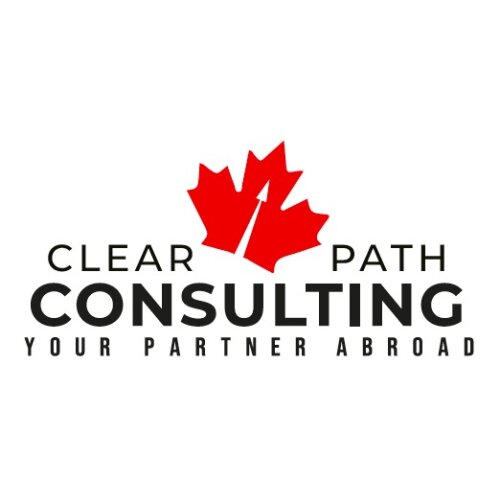Best Work Permit Lawyers in Morocco
Share your needs with us, get contacted by law firms.
Free. Takes 2 min.
Or refine your search by selecting a city:
List of the best lawyers in Morocco
About Work Permit Law in Morocco
In Morocco, the process of obtaining a work permit is a crucial requirement for foreign nationals who wish to engage in employment within the country. The Moroccan Labor Code stipulates that an employer must obtain a work permit on behalf of a prospective foreign employee who intends to work in Morocco. This is essential to ensure that employment is compliant with local labor laws and that the rights of both employees and employers are respected. Work permits are typically issued based on labor market needs, ensuring that local jobs are filled by qualified applicants when possible while allowing foreign individuals to enter the Moroccan workforce where there are skill shortages.
Why You May Need a Lawyer
Navigating the legal landscape of obtaining a work permit in Morocco can be challenging, especially for those unfamiliar with local regulations and bureaucracy. Here are some common situations where legal expertise may be beneficial:
- The complexity of legal documentation: Preparing a work permit application involves extensive paperwork and adherence to specific regulations, which a lawyer can help organize and validate.
- Understanding eligibility: An attorney can assess an individual's situation to determine if they meet the requirements for a work permit.
- Handling denials: If a work permit application is denied, a legal professional can assist with appeals or reapplying.
- Compliance with labor laws: Lawyers ensure that the employment contract and work permit align with Moroccan labor laws.
- Updating permits and visas: Legal assistance can be crucial for extensions or changes in employment circumstances.
Local Laws Overview
Work permit laws in Morocco are governed by regulations that require foreign workers to obtain a specific permit for employment. The key aspects include:
- Employer Sponsorship: Employers in Morocco must apply for work permits on behalf of their foreign employees through the Ministry of Labor.
- Quota System: Work permits are often subjected to a quota, limiting the number of foreign workers in certain industries.
- Contractual Obligations: A valid employment contract is necessary, and it must meet local labor standards.
- Health and Background Checks: Applicants may need to undergo health screenings and provide police clearance.
- Renewals: Work permits typically need renewal every one to two years, depending on the contractual agreement.
Frequently Asked Questions
What documents are required for a work permit application?
The essential documents include a valid employment contract, passport, recent photographs, and possibly educational certificates and a police clearance.
Can I apply for a work permit myself?
No, your employer must apply for your work permit as it must be tied to a specific job offer and employment contract.
How long does it take to obtain a work permit in Morocco?
The processing time varies but typically takes several weeks to a few months, depending on the completeness of the application and current processing times at the Ministry of Labor.
Is a work permit tied to a specific employer?
Yes, a work permit is usually issued for employment with the specific employer who applied on your behalf. Changes in employment require a new application.
What happens if my work permit application is denied?
You may appeal the decision or make a new application, possibly with the assistance of a legal professional to strengthen your case.
Do I need to renew my work permit?
Yes, work permits must be renewed typically every one to two years, subject to the continued employment contract.
Can work permits be transferred between employers?
No, a new work permit is required if you change jobs, as permits are tied to specific employers.
Are there exemptions for work permit requirements?
Certain diplomatic, aid, and international organizations may have exemptions, but these are specific and limited.
Is knowledge of Arabic or French required for approval?
Language requirements depend on the job role and employer, not the permit process itself.
What role does the Moroccan Labor Market play in permit approval?
Priority is given to Moroccan nationals unless a foreign applicant has experience or skills that are scarce in the local market.
Additional Resources
For further assistance and details on work permits in Morocco, consider these resources:
- Ministry of Labor and Professional Integration: This governmental body handles work permit application and regulations.
- Moroccan Embassies and Consulates: They provide guidance and initial instructions for foreigners seeking work permits.
- Legal professionals specialized in immigration and labor law can offer personalized advice and assistance.
Next Steps
If you need legal assistance in obtaining a work permit in Morocco, it’s advisable to begin by researching local law firms or legal consultants specializing in immigration and labor laws. Ensure they have a good track record with handling work permit cases. Schedule a consultation to discuss your situation and obtain a clear understanding of the process and potential costs involved. Additionally, gather all necessary documentation as early as possible to avoid delays in your application process.
Lawzana helps you find the best lawyers and law firms in Morocco through a curated and pre-screened list of qualified legal professionals. Our platform offers rankings and detailed profiles of attorneys and law firms, allowing you to compare based on practice areas, including Work Permit, experience, and client feedback.
Each profile includes a description of the firm's areas of practice, client reviews, team members and partners, year of establishment, spoken languages, office locations, contact information, social media presence, and any published articles or resources. Most firms on our platform speak English and are experienced in both local and international legal matters.
Get a quote from top-rated law firms in Morocco — quickly, securely, and without unnecessary hassle.
Disclaimer:
The information provided on this page is for general informational purposes only and does not constitute legal advice. While we strive to ensure the accuracy and relevance of the content, legal information may change over time, and interpretations of the law can vary. You should always consult with a qualified legal professional for advice specific to your situation.
We disclaim all liability for actions taken or not taken based on the content of this page. If you believe any information is incorrect or outdated, please contact us, and we will review and update it where appropriate.
Browse work permit law firms by city in Morocco
Refine your search by selecting a city.














